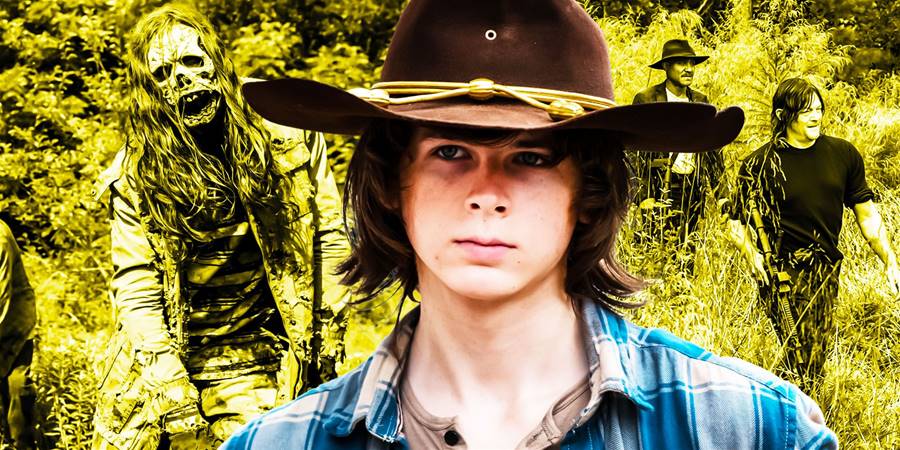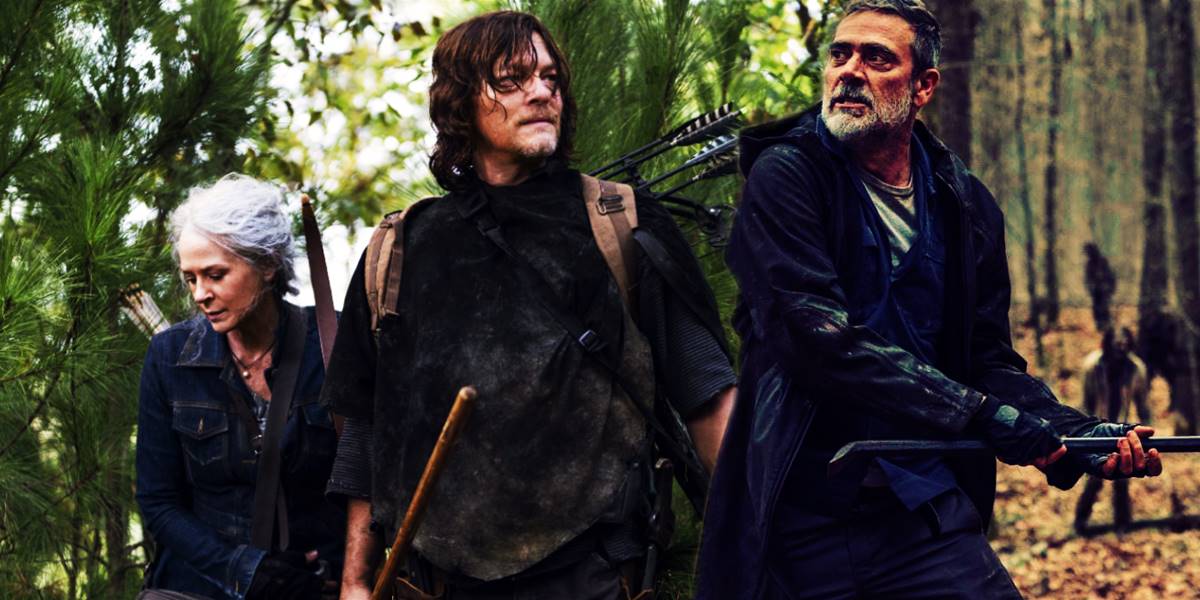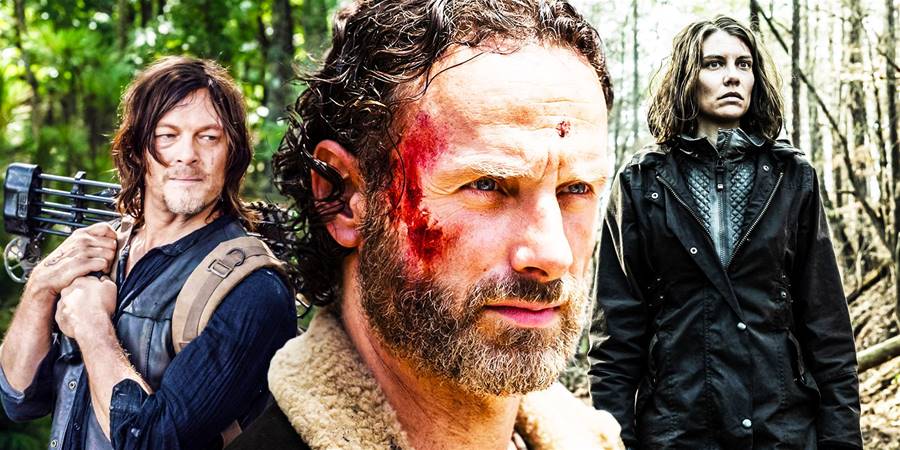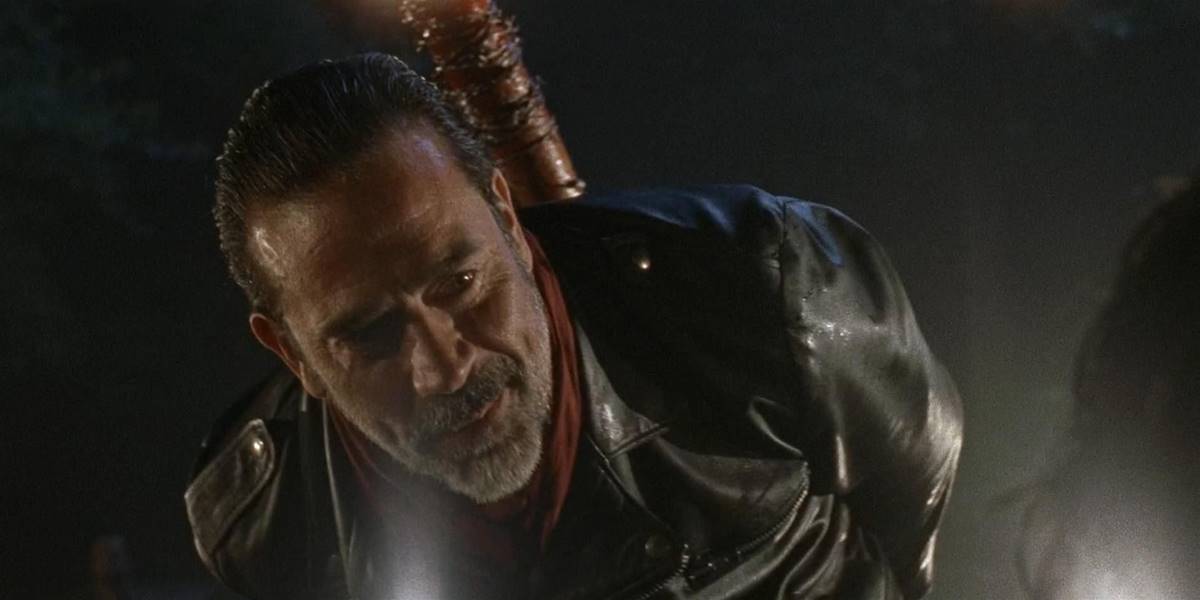

season 11 marked the end of an era not only for the franchise but also for TV as a whole, yet the finale could have been even more impactful had been more consistent. When it comes to shows that redefine how TV is made, it's difficult not to list along with titles like and . Between early 2000s classics like and the first streaming hits, was one of the first shows to become a worldwide success. However, legacy could have been bigger.
Only a few months separated the first episodes of . Two shows that set the tone for the past decade of television, and were often discussed in the same conversation regarding what TV had best to offer. In addition, given how both and were adaptations featuring a large set of characters, the shows shared some of their best qualities and flaws. However, whereas biggest problems began toward the final two seasons, flaws appeared slightly sooner.

Seven of 11 seasons consisted of 16 episodes. The only two seasons with less than 16 episodes were season 1, with six episodes, and season 2, with 13 episodes. On the other hand, had 22 and 24 episodes, respectively. Therefore, while was different from most action dramas, its format of long seasons made the show's structure closer to that of a regular 23-episode procedural than an event series like . premise was innovative even within the zombie genre, but it was stretched too thin.
The idea that the real villains of a zombie story were not the zombies but rather the humans was not necessarily created by , but a post-apocalypse story on that scale, and that was more than just humans fighting zombies had yet to be done. masterfully combined drama with action and followed a set of characters who quickly resonated with the audience. had some of the best character introductions for an ambitious show, and it set the stage for a show in which family dramas would be as important as fighting the walkers.
Even with its new approach to zombie stories, simply ran on for too long. While Robert Kirkman's comics also lasted long, the pacing of comics was far different from that of the show. As a comparison, Shane died in chapter 6 in the comics, whereas the TV version of Shane died in season 2, episode 12. The show had a slower pace than the comics, meaning that it would always take longer for to reach critical moments. That's not to mention , which made the franchise even more repetitive.

character moments initially made the show so different from other zombie and post-apocalypse stories. However, for a show with usually 16 episodes per season and that would go on for 11 seasons, pacing was a problem. Before some of the most successful TV shows were released on a binging-watching model, the weekly discussions about latest episode represented how much of an impact the show was having. Still, would often follow a shocking, action-packed episode with several episodes in which characters just walked and talked for 40 minutes, which was just anti-climactic.
, the ones that would be points of discussion for the entire week, started to get lost among dozens of episodes in which nothing happened. Despite the number of characters and storylines in the comics, never asked for too many episodes per season. There was only so many "Rick's prison scene" or "Glenn's death" moments could have per season, meaning that the rest of the episodes would always fall short in comparison. , which emulated a lot of qualities and flaws, had a similar problem.

and the fact that it continues to run without a clear endgame made the show lose much of its impact on general audiences. Slowly, stopped being an event series that the entire world wanted to watch firsthand so that they would not get spoiled. had built a large viewership by then, yet the show made some strange character decisions that even those who never stopped watching could not understand. Carl's death in season 8 is perhaps the biggest example.
Though had changed the fate of characters compared to the comics several times, not to mention characters created for the shows, such as Daryl, Carl's death didn't make sense. was not something from the comics, nor was it something that the show was asking for. The fact that Andrew Lincoln left not long after it made Carl's death even more strange, as Carl was a natural successor to Rick and could have been the show's new lead. Given that Danai Gurira's Michonne also left the show, Carl's death remains worst story decision.

shocking deaths and other surprising reveals had always been a part of the show, and much of what made so successful has to do with those big moments that would be discussed throughout the entire week. For example, season 6, episode 3, "Thank You," ended with Glenn falling from a dumpster right into the middle of dozens of walkers. Whether even appeared dominated the conversation surrounding the show. However, instead of using those big cliffhangers to elevate the series, started to rely too much on the "what will happen next" idea.
However, the following episode did not reveal what had happened to Glenn. Instead, went for a flashback episode focused on what happened to Morgan between seasons 3 and 5 – a standalone story that could have been placed in any other moment. Therefore, Glenn's fate was only revealed two weeks later. The show continued to double down on its cliffhangers, the biggest example being Negan's debut. Glenn's death, which was supposed to be an unforgettable moment adapted from the comics, was turned into a stretched-out cliffhanger that lasted six months. Curiously, Negan's arrival and Glenn's death were perhaps the last major impactful moments had.
